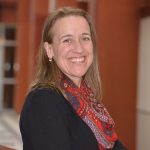Education Week (George Sugai is quoted regarding testimony at a U.S. House of Representatives committee meeting on the use of restraints and seclusion in schools)
“I really love our philosophy at the center: to create better writers, and not just better writing,” says Schweitzer. In the future, Schweitzer would like to take that approach in her own classroom, encouraging her students to develop their writing skills and understanding of the writing process.
While critics charge that charter schools are siphoning money away from public schools, a more fundamental issue frequently flies under the radar: the questionable business practices that allow people who own and run charter schools to make large profits.
Charter school supporters are reluctant to acknowledge, much less stop, these practices.
In his recent text entitled “Why we need to rethink how to teach the Holocaust”, professor Alan Marcus, from the University of Connecticut stresses the importance of the Holocaust survivors in education, stating the following: “Without survivors, the Holocaust will pass into being taught strictly from learned memory.”
The ability to collaborate and advocate beyond the classroom and across stakeholders, from department chairs to administrators to parents, is a crucial teacher leadership skill, says Michele Back, assistant professor of world languages education at Neag School of Education. The critical shortage of world language teachers, she says, combined with the diminishing number of U.S. students taking world language courses, means that teacher candidates in this content area must be strong advocates for their own profession from the moment they step into the classroom.
“I’ve found — both anecdotally and in my research — that freedom to push and pull at the game’s narrative and ruleset provides students with a sense of greater personal ownership, and therefore greater depth of knowledge about content than usually accompanies schoolwork,” says Slota.
“It’s great to be back. This is and will always be home for me,” Elliott says. “I came here to Storrs when I was 18 years old, wet behind the ears as a freshman coming from the inner city of Washington, D.C. I owe a lot to this place.”
“While critics charge that charter schools are siphoning money away from public schools, a more fundamental issue frequently flies under the radar: the questionable business practices that allow people who own and run charter schools to make large profits.”
“We’re trying to make it so people with disabilities have more opportunities for employment in society, right?” said Allison Lombardi, a professor who teaches in the Special Education Program at the University of Connecticut. “There’s not a separate society for just people with disabilities, so it really doesn’t make sense for us to create programs that are so separate.”
“We can’t afford to overlook talent,” says Del Siegle, a professor of gifted education at the University of Connecticut, where he also directs the National Center for Research on Gifted Education. “The only way our country is going to reach its potential is if all the children have an opportunity to reach theirs.”


